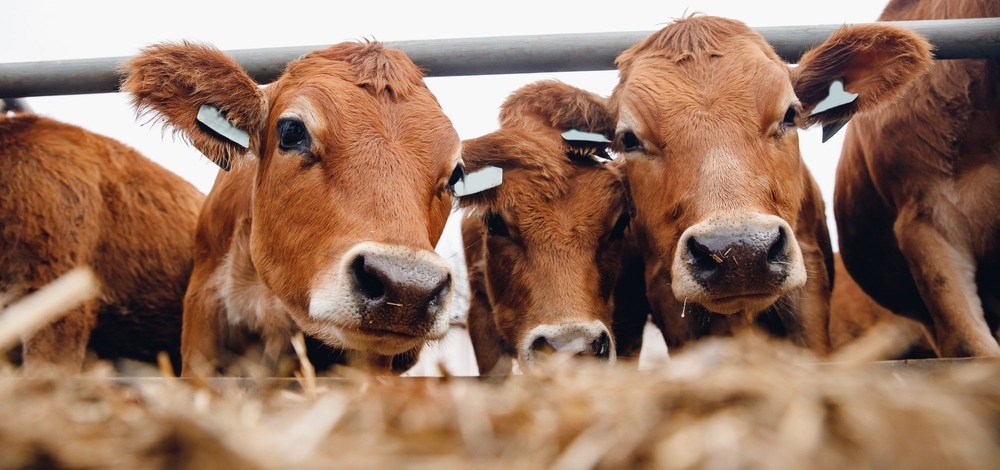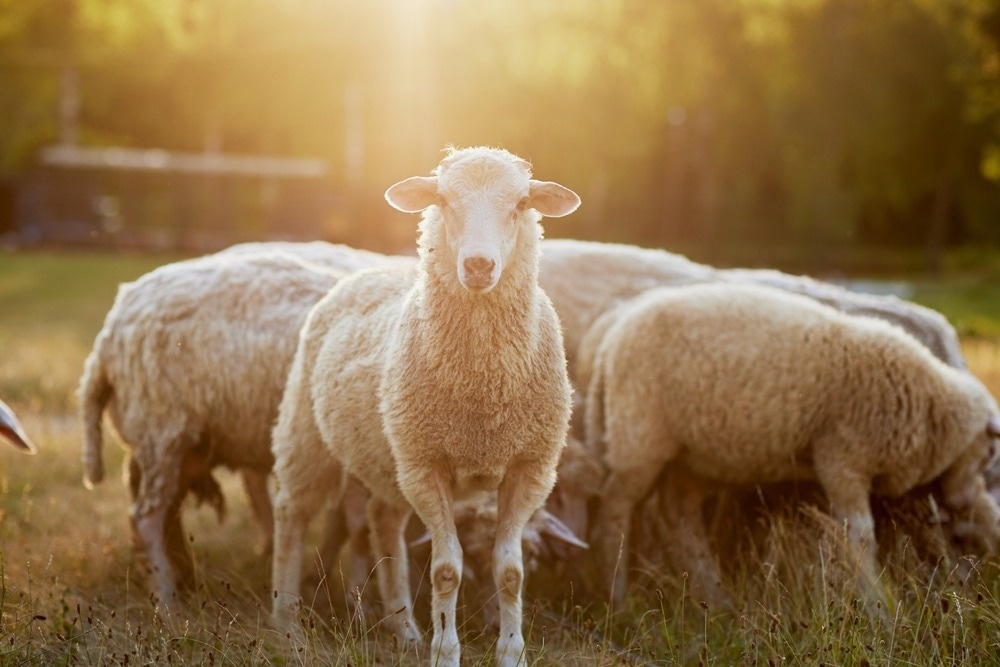Sponsored Content by MGIReviewed by Olivia FrostJul 23 2024
Genomics is an invaluable tool for discovering new genetic variants, selecting desirable traits, and enabling precise breeding in agriculture. Historically, the study of genomics has been limited by its high cost. However, with the recent advancements in low-pass whole genome sequencing, this field is now becoming more accessible to agricultural research. Helping to propel this field forward, innovations in low-pass sequencing technology promise to revolutionize agricultural breeding, foster more sustainable production, and enhance food security.

Image Credit: BLACKDAY/Shutterstock.com
Amid the Anthropocene, global agriculture faces colossal challenges in feeding the world’s ever-increasing population. The world must continue to increase crop and livestock production, even with limited land and water resources, the unpredictability of climate change and extreme weather, and constantly evolving pathogens/pests.1 To achieve this goal, frontier genomics technology needs to become more accessible to agricultural research institutions worldwide.
New advancements in genomics study hold great promise when it comes to improving both plant and animal breeding systems for more sustainable agriculture. In the last decade, genome sequencing has offered one of the greatest tools for the genetic improvement of cattle. To uncover and understand key genes and haplotypes that can act as markers for productivity, genomic techniques are used to improve dairy cattle selection strategies.2 The combination of germplasm sequencing and genome reference assemblies, for instance, has emerged as a powerful means to help secure the future food supply.1
Genomic methods in livestock breeding
Extensive genome-wide association studies have pinpointed numerous genetic variants linked to complex traits in both humans and agricultural animals. However, despite the reduced cost of sequencing techniques, whole-genome sequencing (WGS) remains expensive for agricultural breeding studies with a large number of livestock.3

Image Credit: Parilov/Shutterstock.com
A genotype imputation strategy, which imputes a low-density genomic panel to a high-density, provides a cost-effective alternative to comprehensive sequencing. Among the relevant techniques, array-based genotype imputation has long been a standard approach for studying livestock genomes. The accuracy of this method depends on the size of the reference panel and the genetic distances between target and reference populations. However, large reference panels are unavailable for agricultural species, thus limiting the application of this method.3
Now, more cost-effective alternative techniques like low-pass whole genome sequencing (Low-pass WGS) are becoming more popular in agricultural studies. These techniques offer more accurate detection of genetic variation within the genomes of various species.
The future of livestock breeding with low-pass whole genome sequencing
Low-pass WGS sequences the whole genome at a much lower coverage depth (typically less than 1x coverage) and offers a relatively inexpensive alternative to whole genome and exome sequencing. Combined with genotype imputation, low-pass WGS provides trait mapping with a higher statistical power and increased accuracy compared to genotyping arrays.4
Moreover, compared to targeted sequencing methods, low-pass WGS allows for a deeper exploration of the genome. It locates regions that may influence specific complex traits and provides accurate genomic predictions across species subsets. This method reveals more information than traditional genotyping arrays, enabling the breeding industry to leverage their genotyping data for the discovery of rare genetic variants.

Image Credit:sergey kolesnikov/Shutterstock.com
Whole workflow solution for agricultural large-scale low-pass whole genome sequencing
MGI Tech, a global life science company, recently launched its AgriHigh low-pass WGS Package, with customers testifying about the success of MGI’s sequencing technologies, even when compared to other companies’ products. This whole workflow solution includes sample extraction, library preparation, sequencing, and SNP & InDel calling. Thanks to its ultra-high throughput design, large-scale library preparation can be conducted in much shorter timeframes.
MGI’s Low-pass WGS workflow facilitates the discovery of new genetic variants and strengthens the statistical power of agricultural genetic research while reducing the costs of experimental reagents. Prof Robert Henry (Centre for Crop Science, Queensland University) feels it is a “great success to see this method being used in not only large projects but also many small projects, which couldn’t otherwise have afforded to use genomics.” He believes the technology is much more widely applicable to smaller-scale agricultural studies at this stage.
Dr. Wai Yee Low (researcher at The University of Adelaide) comments on the high concordance between the results from the SNP array and SNP probe-based genotyping, “about 98 % concordance, with very good R squares when we compare the SNs between the two technologies”. Prof Yu Jiang (College of Animal Science and Technology, NW AF University, China) believes MGI’s low-pass WGS total solution is more attractive because of its low cost and affordability, increasing farmers’ accessibility to the better predictions they need.
Advancements in Low-Pass Sequencing Transforming Agricultural Genomics
Commercially, MGI’s Low pass-WGS workflow meets the following key objectives:
- It is dynamic, providing high-quality data.
- It has a short turnaround time for a broad array of applications.
- It has a low cost per gigabase in data production, making it competitive with other competitive alternatives.
Conclusion
With a commitment to building core tools and technologies that drive innovation not only in agriculture but also in all life science disciplines, MGI Tech understands the importance of improving genomic techniques to make them more widely accessible. With the new workflow solution for low-pass WGS, genomics is more readily available to agricultural research, and this new method will help to pave the way for more precise livestock breeding and sustainable food production.
MGI Tech’s large-scale low-pass WGS products are available for order. See this product webpage for more information and kick-start your livestock genomics research today!

Image Credit: MGI
References
- Bohra, A., Chand Jha, U., Godwin, I.D. and Kumar Varshney, R. 2020. Genomic interventions for sustainable agriculture. Plant Biotechnology Journal. 18(12), pp.2388-2405.
- Gutierrez-Reinoso, M.A., Aponte, P.M. and Garcia-Herreros, M. 2021. Genomic analysis, progress and future perspectives in dairy cattle selection: a review. Animals. 11(3), p.599.
- Yang, R., Guo, X., Zhu, D., Tan, C., Bian, C., Ren, J., Huang, Z., Zhao, Y., Cai, G., Liu, D. and Wu, Z. 2021. Accelerated deciphering of the genetic architecture of agricultural economic traits in pigs using a low-coverage whole-genome sequencing strategy. Gigascience. 10(7), p.giab048.
- Li, J.H., Mazur, C.A., Berisa, T. and Pickrell, J.K. 2021. Low-pass sequencing increases the power of GWAS and decreases measurement error of polygenic risk scores compared to genotyping arrays. Genome research. 31(4), pp.529-537.
About MGI
MGI Tech Co., Ltd. (or its subsidiaries, together referred to as MGI), is committed to building core tools and technologies that drive innovation in life science. Our focus lies in research & development, manufacturing, and sales of instruments, reagents, and related products in the field of life science and biotechnology. We provide real-time, multi-omics, and full-spectrum digital equipment and systems for precision medicine, agriculture, healthcare, and other industries.
Founded in 2016, MGI has grown into a leader in life science, serving customers across six continents and has established research, manufacturing, training, and after-sales service facilities globally. MGI stands out as one of the few companies capable of independently developing and mass-producing clinical-grade gene sequencers with varying throughput capacities, ranging from Gb to Tb levels. With unparalleled expertise, cutting-edge products, and a commitment to global impact, MGI continues to shape the trajectory of life sciences into the future.
As of June 30, 2024, MGI has a team of over 2,670 employees, with research and development personnel accounting for approximately 32.16%. Our business spans over 100 countries and regions worldwide, serving more than 3,000 users.
Sponsored Content Policy: News-Medical.net publishes articles and related content that may be derived from sources where we have existing commercial relationships, provided such content adds value to the core editorial ethos of News-Medical.Net which is to educate and inform site visitors interested in medical research, science, medical devices and treatments.